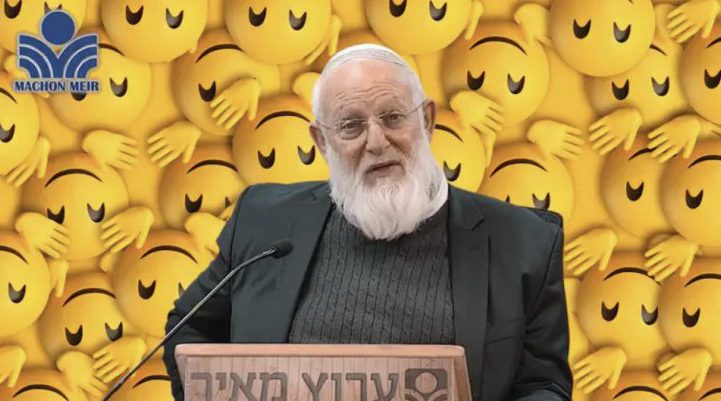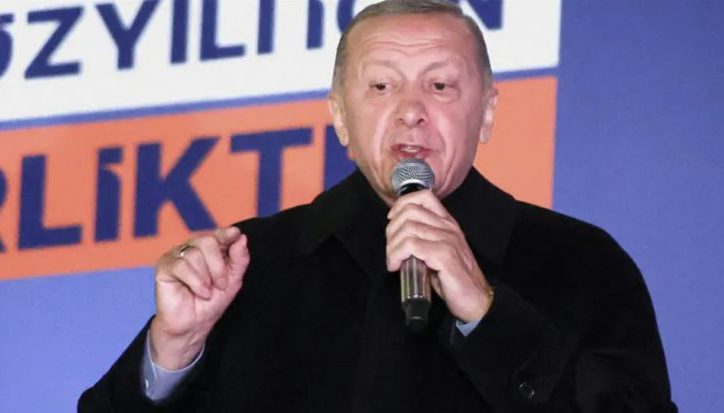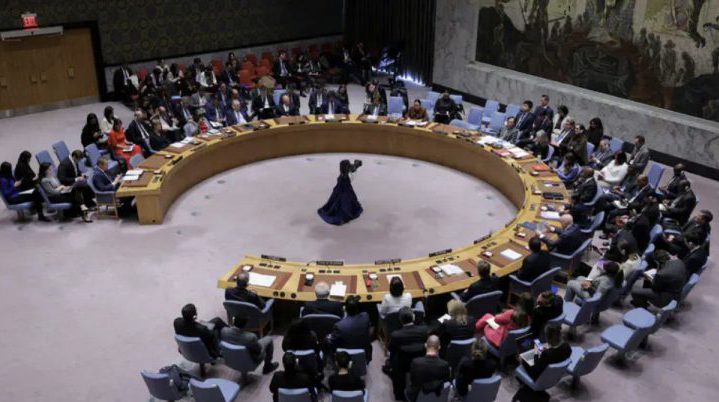The holiday of Purim encompassing the miracle, the salvation, happiness, the Diaspora, Eretz Yisrael, the Jerusalem Temple and more….
Our Sages teach that one of the main reasons the Jews were blessed with salvation from the machinations of Haman and Achashverosh’s decree of destruction was because the Jews united together. In our time, many have suggested that the tragedy which befell us on Simchat Torah, leading to the war in Gaza, was preceded by a virulent lack of unity in Israel.
As Purim approaches, it is an appropriate time to review Rabbi Kook’s teachings on Ahavah (love) which is one of the features of the holiday, highlighted by gifts of money to the poor and gifts of food to friends and to the spirit of joyful brotherhood which marks the day.
Every year during my 12 years of study in the Mercaz HaRav Yeshiva in Jerusalem, Rabbi Kook’s son, HaRav Tzvi Yehuda Kook, would go over his father’s teachings on Ahavah, often reading word-for-word from Rabbi Kook’s writings, without changing a sentence or adding commentary of his own. He said that Purim was a good time to go over his father’s deep insights on the subject of Ahavah, a discipline of Torah vital to the overall wellbeing of the Israelite Nation who stood together with one heart at Mount Sinai.
Every year, HaRav Tzvi Yehuda would tell new students that his father stressed that Ahavat Yisrael was not an abstract feeling but a commandment of the Torah that had to be worked on and observed as meticulously as every clause in the Shulchan Oruch. Rabbi Kook wrote:
“Loving thy neighbor as thyself and the work of stressing the good in the Clal (encompassing community of Israel) and in the individual isn’t simply work on the emotional level alone, but a great occupation of Torah, and a profound reach of wisdom. (Orot, Orot Yisrael, 4:1).
“It is a great and enlightening task to totally remove anger from the heart and to feel unlimited compassion and kindness, to gaze upon everything with a favorable eye, even upon the actions of the most wicked, in emulation of the pure Divine Eye, to feel compassion for those sunk in the mire of evil, and to find some good in them,” (Orot HaKodesh, Vol. 3, Pg. 326).
Rabbi Kook taught that even the sinners of Israel, as long as they identified themselves with the Israelite Nation, albeit in distorted fashions, were worthy of unreserved love. He wrote the pious of the generation, lofty holy men, must disregard any deficiency or flaw in every Jewish soul that is in any way attached to the Rock from which it was hewn. Instead, they must raise the point of connection to Clal Yisrael that exists in every individual soul to its heights and exalted holiness. Nothing can diminish our unlimited love for the Nation, the source of our life, as it says: “He has not seen beheld iniquity in Yaacov, nor has He seen perverseness in Israel” (see the book Orot, Orot HaTechiyah, 24).
HaRav Tzvi Yehuda recalled that his father’s famous love toward the secular Zionist pioneers drew extremely harsh criticism from extremist zealots in parts of the haredi community. Rabbi Kook’s followers often beseeched him to strike back at those who sought to besmirch him and who shamelessly belittled his greatness in Torah.
“With all of their wickedness,” he wrote, “As long as they cling to the collective of the Nation (Clal Yisrael), they are included in the verse, ‘Your people are all righteous’” (Yisheyahu, 60:21; Orot HaTechiya, 20).
Rav Kook explained that this outer wickedness served to fortify the strength of the righteous, who must struggle against this darkness by adding more light. I think this applies as well to the so-called anarchists and radical leftists of our time. While we don’t have to agree with their beliefs, just look at their spirit of self-sacrifice for what they believe is the salvation of the nation. People return week after week to the streets of the country to demonstrate for their idea of Israeli democracy and freedom.
This forces us to explain on a higher level that what they seek is really to be found in the Torah. They demand life without restrictions filled with expansive universal horizons. Our job, Rav Kook emphasized is to embrace them with love and introduce them into the world of true equality and justice, when mankind will no longer be slaves to their evil inclinations and misguided passions. This is the Torah of Redemption that we so yearn for, along with the rebuilding of the Beit HaMikdash, may it be soon.”
Often, non-religious Jews hold up Rabbi Kook as a paragon of tolerance and an advocate of embracing all opinions in the name of harmony and peace. Rabbi Kook saw the shortcomings of his generation as much as anyone in his time. Nevertheless, he sought to find merit in every Jew – the sign of an enlightened leader. In explaining this, Rabbi Tzvi Yehuda would point to the chapter on Saintliness in the book, “Mesillat Yesharim,” where the famed Kabbalist, Rabbi Moshe Chaim Luzzato, writes: ‘These are the true shepherds of Israel, whom the Holy One Blessed Be He greatly desires, those who sacrifice themselves for His sheep, who petition and actively work for their peace and benefit in all of their endeavors, and who forever stand in the breach to pray for them, in order to nullify stern decrees, and to open the gates of blessing for them.”
“The great love that we feel for our Nation does not shut our eyes to its blemishes,” Rav Kook wrote. “Even though loving mankind encompasses everyone, and sometimes an evil person also falls into this general love, this doesn’t in any way interfere with hating evil,” (Orot, Orot Yisrael, 4:3).
Rabbi Kook taught that hatred should only be directed toward the evil and filth in the world. He said that it was proper to hate a corrupt person only for his defects, but insofar as he is endowed with a Divine Image, it is necessary to love him, (Midot HaRayah, Ahavah, 9).
While Rabbi Kook’s love for the Jewish People knew no bounds, one should not think that he was the same as a liberal, reform rabbi who believed that everyone was free to do his own thing, G-d forbid. On the contrary, he harshly condemned desecrations of the Torah and did all he could to inspire transgressors to mend their ways. For instance, he writes, “Whoever undermines, through the proliferation of ideas, and, all the more so, through deed, the holy idea which vitalizes the Israelite Nation, he is a traitor to the Nation, and to pardon him is folly,” (Letters, 93).
Today we clearly see that the lack of brotherly love in the Jewish Nation causes disunity which weakens the spirit of Nation and jeopardizes our continued settlement of the Land. The rifts we see today, whether between political parties, between the religious and the secular, or within the religious world itself, are obstacles which prevent us from working together in unison to pull the wagon of Israeli Nationhood out of the darkness of division toward the light of Redemption. This can only be rectified, Rabbi Kook taught, by an active and encompassing love for all segments of the Nation.
He stated: “Since groundless hatred caused the destruction of the Second Temple, in order to bring about the Temple’s rebuilding, we have to increase unlimited love.” This love is not dependent on anything. It is like G-d’s unconditional love for Israel. This love exists regardless of any shortcomings in the beloved, or without any conditions that have to be met. Even with all of the deficiencies and imperfections in people, love must be total. There can be great differences in personalities, or disagreements in learning, or debates over the right thing to do, but true Ahavah transcends all of this and surrounds all of the Jewish People, like the eternal love of G-d for His chosen Children.
What was true in Rabbi Kook’s time is true for us today. We have to love our fellow Jews and bring them closer to the Torah. The joyous love we feel on Purim for all Jews helps bring us to this exalted level to which we are called upon to nurture throughout all of the year.





